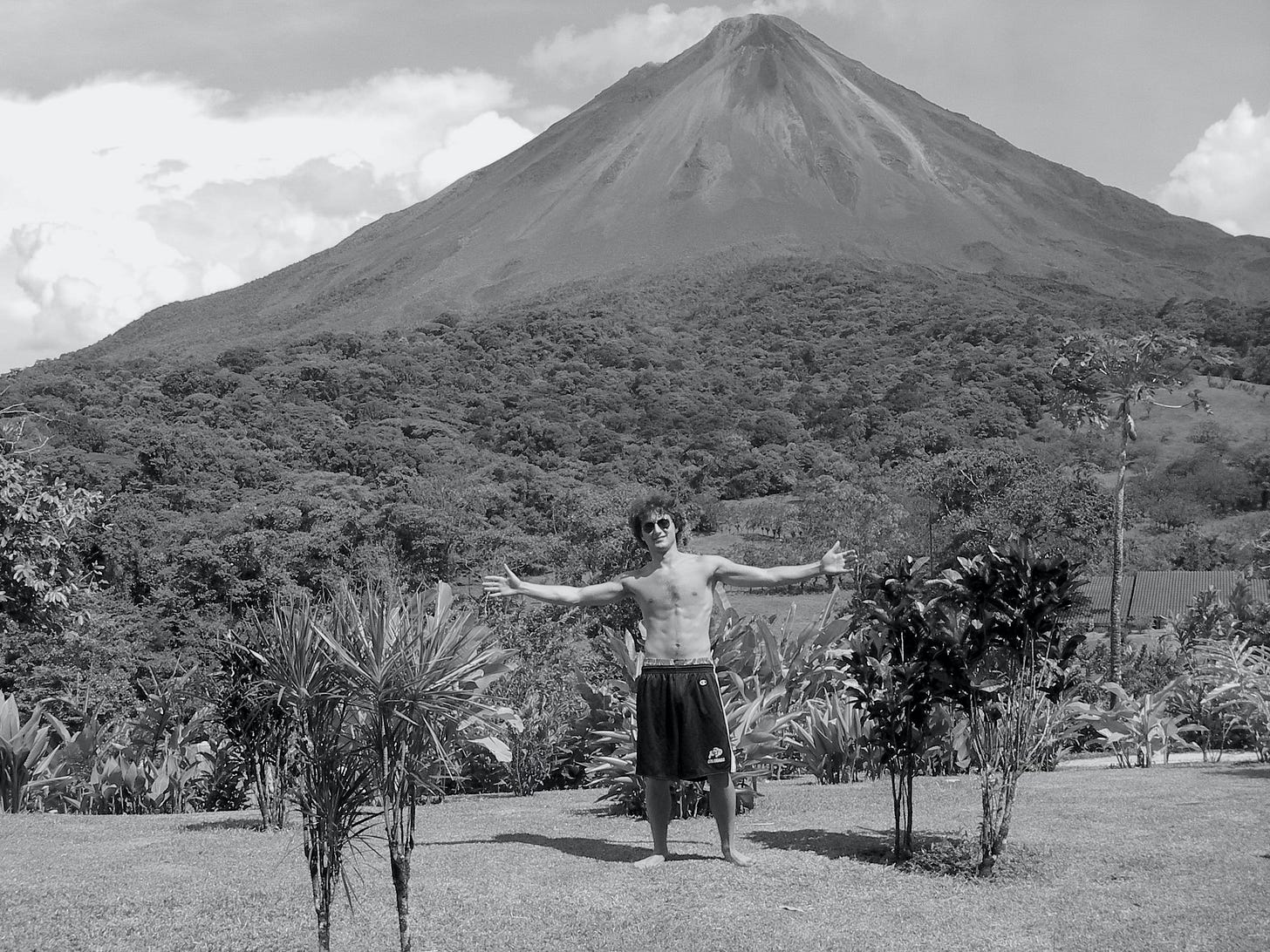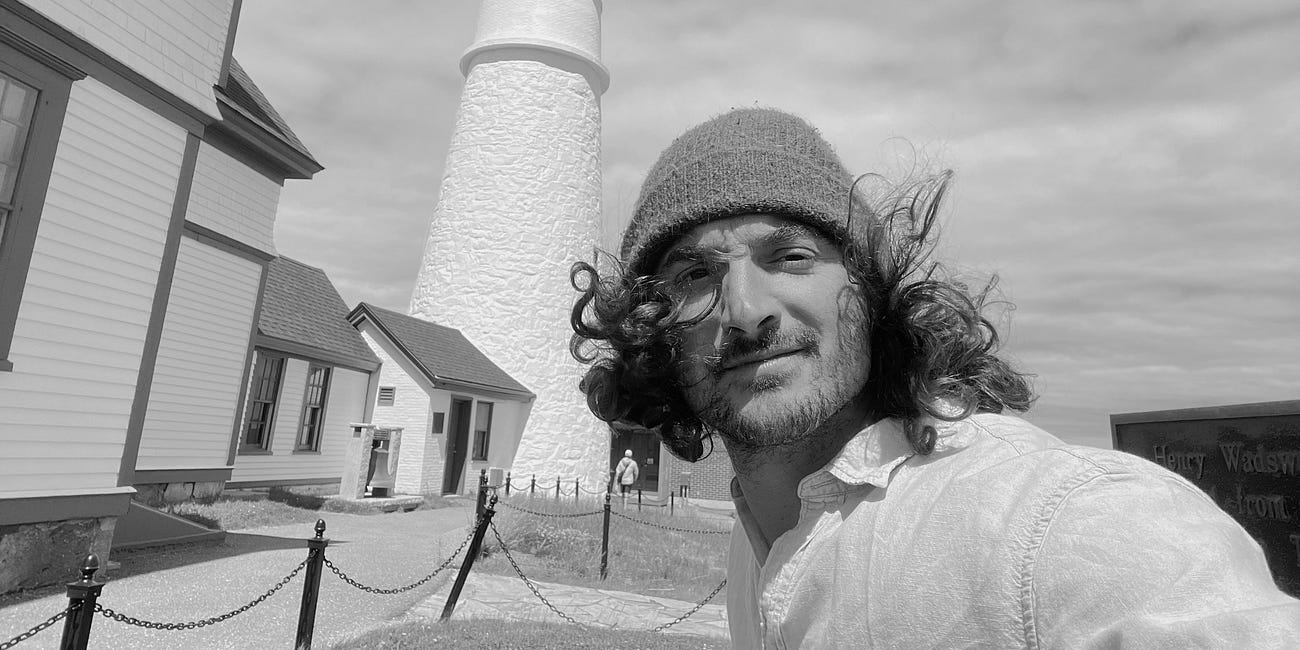A friend of mine recently got close with a well-known influencer—a person with all the markers of success: hundreds of thousands of followers, high six-figure income, complete digital nomad—but as soon as the accolades wore off, it became clear I didn’t want his life at all.
The guy travels the world, reads his poetry for live audiences. On the surface it looks great. He consults with paying clients and has “friends” everywhere he goes, which I put in quotes because the truth is he spends a lot of his time alone—and, in a word, he seemed to be incredibly lonely.
Those clients, they’re all virtual—funneled in from Instagram—and as many of us know by now, there’s that moment when you get off a video call, especially after a lively discussion, when you push the LEAVE MEETING button and it’s suddenly so quiet. In that harsh juxtaposition, you can’t deny that those people on the other side weren’t actually there with you at all.
I won’t harp on this guy because 1) he’s quite nice, and 2) he obviously cannot defend himself. But I will argue against his main premise that the path to freedom—financial or otherwise—is found through social media. One piece of advice he offered my friend was to “get on a podcast . . . but make sure it’s filmed, so you can cut it up for Instagram content.”
Don’t get me wrong: I understand the need for branding and business development. What I take issue with is the incessant corruption of your art, your personality, of your life itself for the sake of content.
In this mindset, the façade you end up creating is thin and weak. Before long, it’s hard to even make sense of your original premise. Just as the cobbler’s kids have no shoes, the wellness influencer so often seems to be lacking in the very wellness they promote.
That used to be called selling out. Though as avenues to find job security in every field dry up, selling out almost seems necessary—so it’s hard to take issue with the idea wholesale. The important difference is that selling out doesn’t mean you need to sell yourself out, too. So let’s make a distinction. Let’s rally around those fighting with integrity, staying true to themselves, and instead call out those influencers who corrupt themselves daily for what they really are . . . posers.
Posers? That’s MrBeast saying he thinks of everything he does in terms of the YouTube algorithm, tailoring his videos to please the technocratic gods of optimization so that he might benefit from their blessings. And benefit he does! He’s worth $500,000,000.
But if everything in life is corrupted to produce content 🤮 then what’s the point? Where’s the actual living?
This isn’t some isolated take. As Rebecca Jennings writes in her article Everyone’s a sellout now: Many influencers say influencing sort of ruined their lives. YouTubers have said the pressure of posting their lives led them to deep unhappiness, depression, and anxiety, but that they feel like they can’t take breaks because they know the algorithm will punish them. In almost every interview I do with TikTokers, they want to talk about how burned out they feel, pretty much all the time.
As they say, though, misery loves company. So is it any wonder that most of these influencers and the companies that pedal their schtick are out there trying to convince us we really, truly, dearly do in fact want and need to be on the socials for our own sake?
I had a revelation the other day: I don’t want be on social media because I don’t need social media. After months, maybe even years of not feeling that it’s serving me, the clarity was shocking. And I’m not the only one. I’ve been having more and more conversations with people about abandoning social media altogether.
writes about this a lot in his excellent newsletter Social Media Escape Club.It's all rather unfortunate, too, because I recall a time when getting on Facebook meant connecting with actual friends, people you knew in real life, when the platform itself merely extended the relationships you already had. This functionality is still buried in there somewhere ever deeper, which I glimpsed fleetingly after I wrote about getting divorced—which led to great exchanges with some old friends—but the friendships that once persisted online have increasingly been replaced by influencers and their followers.
What is the reality of our modern online relationships? Some are positive, of course (and I’ve met many great people here on Substack). But most are one-sided, parasocial relationships.
captures this better than I can . . .Think about it this way: if the power goes out, will the relationship still be there? If the answer is NO, then maybe it’s not worth as much as you think. Perhaps this is why modern friendship can feel so lonely.
The heart is the perfect symbol for our online affection, because it’s our hearts that are affected when we give and receive likes online. Consider the inane things we do online to stay relevant: join ridiculous challenges, corrupt ourselves for content, pretend we’re fighting for something, for a cause, by making an Instagram post “in solidarity” when it doesn’t move the needle except for in our own minds. We’ve all been infected with the idea that the online world can supplant the real thing.
A digital community—while a community it may be—doesn’t hold a candle to the connections we make in person. I’m not some luddite saying we shouldn’t be online, but that space should be transitory, used as needed, an avenue to initiate connections in order to foster them elsewhere, in person.
I’m grateful for my actual friends, the people who have chosen me and I don’t mind cutting off the “friends” online.
As Tom Waits once said: champagne for my real friends, real pain for my sham friends.
It’s funny to me that the best way to find the happiness, the groundedness, that settled / satisfied / fulfilled life which influencers love selling is by getting rid of these people altogether. I don’t live my life for the content, but to be content. I’m not trying to surround myself with people who make me feel inadequate—and influencers, by and large, profit off doing just that.
Perhaps this whole rant is ironic coming from someone trying to make a living writing, mostly online. But I like to think if you’ve read this far, you get it. You share this sensibility of what’s important. And you know that finding the good stuff in life is not always where people say it is. Some of it is online—alright—but for the most part, it’s not.
To wrap this up, it was my birthday the other week. All I know for sure is that I’d take a handful of friends who call and text over a hundred that tap out HBD! on my Facebook wall. And that will never change.
So here’s to high fives and handshakes, hugs and kisses, and all the things you will never be able to do through a screen.
-Martin
If you liked this story, how about another . . .
How to Life Hack
I’m sick of the promise of instant gratification. Hacks for everything, pills for everything, tricks for manifesting the good life without any effort at all. Snake oil salesmen have been around since the dawn of civilization, dressed up in whatever clothes the day requires for the…







I have a YouTube Channel that I started 2 years ago. Ironically, I have no interest in being famous, but I do like being creative and sharing things that I create with the world. I am constantly checking with myself to make sure I'm still doing it for the right reasons (i.e. connecting with interesting people in the places I travel to, documenting my own knowledge and experiences for myself). It can be difficult to stay the course when the incentives (views, money, etc.) can push you in the opposite direction.
Hey Martin! My friend Jon sent me this article (he commented below), and it resonated with me a lot. I used to be a vlogger and I got so fed up with filming every second of my life that I quit doing it. Writing a weekly article is so much easier on me and makes me feel I have more balance. Love your work and I'll be following you from here on out.